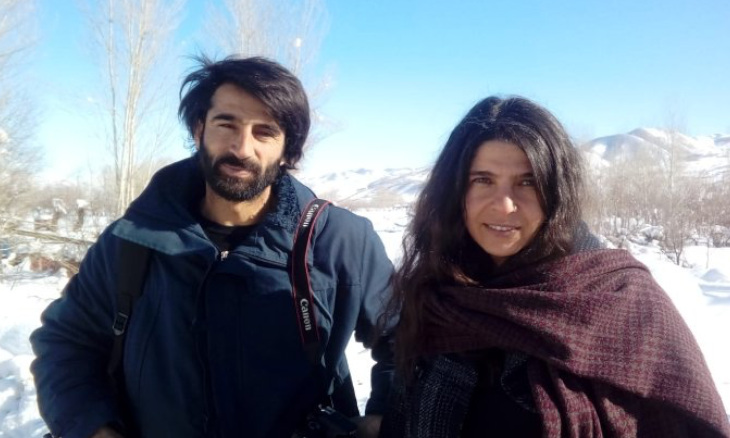Journalist films short documentary on Dersim mountain goats cherished as holy by locals
Journalist Sevim Kahraman and area resident Özkan Ulucan of the northeastern, mountainous province of Dersim have filmed a short documentary about the area's mountain goats, which are considered holy by locals, the vast majority of whom adhere to the Alevi faith.
Hacı Bişkin/ DUVAR
Journalist Sevim Kahraman and area resident Özkan Ulucan of the northeastern, mountainous province of Dersim have filmed a short documentary about the area's mountain goats, which are considered holy by locals, the vast majority of whom adhere to the Alevi faith.
Despite fierce opposition from the locals, the goats are under continuous threat from hunters, many of whom come on excursions from outside the country. The Dersim residents who spoke to Kahraman and Ulucan for their documentary said that they consider the mountain goats to be the flock of Hızır, a holy prophet revered by Alevis.
Formally renamed Tunceli after the establishment of the Turkish republic, the province is overwhelmingly referred to by locals as its previous name, Dersim. The vast majority of the 90,000 residents are of the non-Sunni Alevi faith and speak the Zaza language as a mother tongue.
Alevis, considered by many Sunnis to be heretics, have been persecuted for centuries during the Ottoman period and in modern Turkey. Led by chieftain Seyid Rıza, a rebellion in Dersim against assimilation by the Turkish government in 1937-38 was brutally squashed, resulting in the deaths of at least 10,000 Alevi-Zaza people.
“The goats in the mountains, the mountains in the sky, and the fish in the water are sacred for us,” said one Dersim resident who was interviewed in the documentary.
“Once we got a grasp of what was happening in Dersim, in spite of our lack of sufficient technical equipment, we started working to spread the message from our Youtube account. By listening to the elderly people who are the bearers of a historical memory, on one hand we added touching content to [the documentary], and at the same time we proceeded with the consciousness that people should be guided not solely by materialistic but by mystical and belief-based principles,” Ulucan said.

